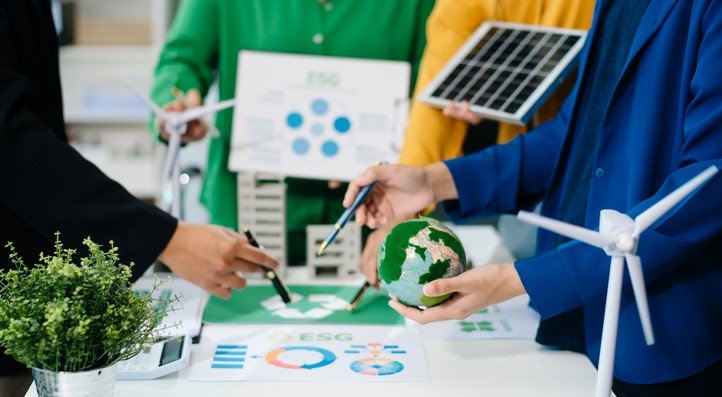Business schools face a pivotal moment. No longer can they limit themselves to teaching profit margins and management techniques. Instead, they’re shifting gears—embedding sustainability and innovation at every turn to prepare leaders who can handle real-world crises like climate change, social inequality, and economic uncertainty. This change is about more than just adding a course or two; it’s a fundamental rethink of how business education shapes minds and molds futures.
The 17 United Nations Sustainable Development Goals (UN SDGs) provide a clear blueprint. By aligning curricula, research, and campus culture with these goals, business schools aim to spark a new generation of responsible, impact-driven leaders. This article unpacks how this transformation is already taking root, the hurdles faced, and why it matters now more than ever.
Embracing Sustainability in Curriculum and Campus Culture
Integrating sustainability isn’t just about sprinkling in a few lessons on climate action or gender equality. It means weaving these themes deeply into the fabric of business education. This approach helps students move past traditional views of business as just profit-making machines. Instead, they start to see companies as actors with social and environmental responsibilities.
At many institutions, this is becoming reality. Class discussions now tackle how business decisions affect communities and the planet. Case studies focus on companies balancing financial success with sustainability goals. Faculty are evolving their teaching styles to emphasize impact-driven skills—encouraging students to think critically about their role in society.

Interestingly, sustainability also reaches beyond the classroom walls. When business schools incorporate eco-friendly practices into daily campus life—reducing waste, conserving energy, promoting diversity—they create an immersive environment that inspires students to act with purpose. This kind of “learning by living” experience helps solidify sustainable thinking as second nature.
One challenge, though, is avoiding the trap of “greenwashing”—offering superficial changes without real commitment. Schools that succeed are those genuinely embedding these values into every decision, from admissions policies to research priorities. This authenticity fuels student engagement and attracts faculty passionate about making a difference.
UN SDGs as a Roadmap for Business Schools
The United Nations’ SDGs offer a practical, globally recognized framework for business schools eager to drive change. Instead of generic sustainability, schools tailor their strategies to goals that best align with their local context and mission. For example, a school in a coastal city might focus more on climate resilience and marine conservation, while another in an urban center might emphasize social equity and economic growth.
By adopting the SDGs, business schools can:
-
Redesign courses to reflect pressing global issues and innovative solutions
-
Develop research agendas focused on social impact and sustainable business models
-
Foster partnerships with communities, governments, and industries to apply learning in real-world settings
This approach meets rising societal expectations that businesses act responsibly and ethically. It also challenges the traditional “profit-first” mindset, encouraging students to think of business as a force for good.
A table comparing traditional business education with sustainability-integrated education highlights this shift:
| Aspect | Traditional Business Education | Sustainability-Integrated Education |
|---|---|---|
| Core Focus | Profit maximization | Triple bottom line: profit, people, planet |
| Curriculum | Management, finance, marketing basics | Includes SDGs, ethics, social innovation |
| Research | Market trends, efficiency | Social impact, environmental solutions |
| Campus Operations | Standard sustainability practices | Comprehensive eco-friendly, inclusive policies |
This table underscores the depth of change business schools are undergoing, from superficial tweaks to a complete transformation of their mission and impact.
The Role of Faculty and Students in Driving Change
Behind this shift are passionate educators and motivated students. Faculty members are adapting to new roles—not just as lecturers but as mentors guiding future changemakers. This requires constant learning and openness to new perspectives. Many educators embrace interdisciplinary approaches, blending business studies with environmental science, social justice, and technology.
Students, meanwhile, show growing enthusiasm for sustainability-focused projects and internships. They want more than a diploma; they crave meaningful experiences that allow them to tackle real challenges. Programs encouraging hands-on learning, community engagement, and innovation labs are booming.
For instance, at several schools, students have developed startups addressing plastic waste or financial tools promoting inclusive growth. These initiatives not only help students apply theory but also create tangible benefits for society.
Why This Matters More Than Ever
The world is shifting under our feet. Climate crises intensify, inequality widens, and global markets grow volatile. Business leaders of tomorrow can’t afford to ignore these forces. By embedding sustainability and innovation into business education, schools equip students with the mindset and tools to lead responsibly.
This shift also signals a broader societal change. Investors, consumers, and regulators increasingly demand transparency and accountability. Graduates fluent in sustainability principles will be better positioned to navigate this evolving landscape.
And let’s be honest—this transformation isn’t always smooth sailing. Resistance exists from traditionalists clinging to old models. Budget constraints, faculty training needs, and curricular overhauls pose hurdles. But the momentum is undeniable.
Ultimately, rethinking business education through the lens of sustainability and innovation is about crafting a future where business can be a force for positive impact, not just profit. It’s about teaching leaders to ask the hard questions and dare to create a better world.








